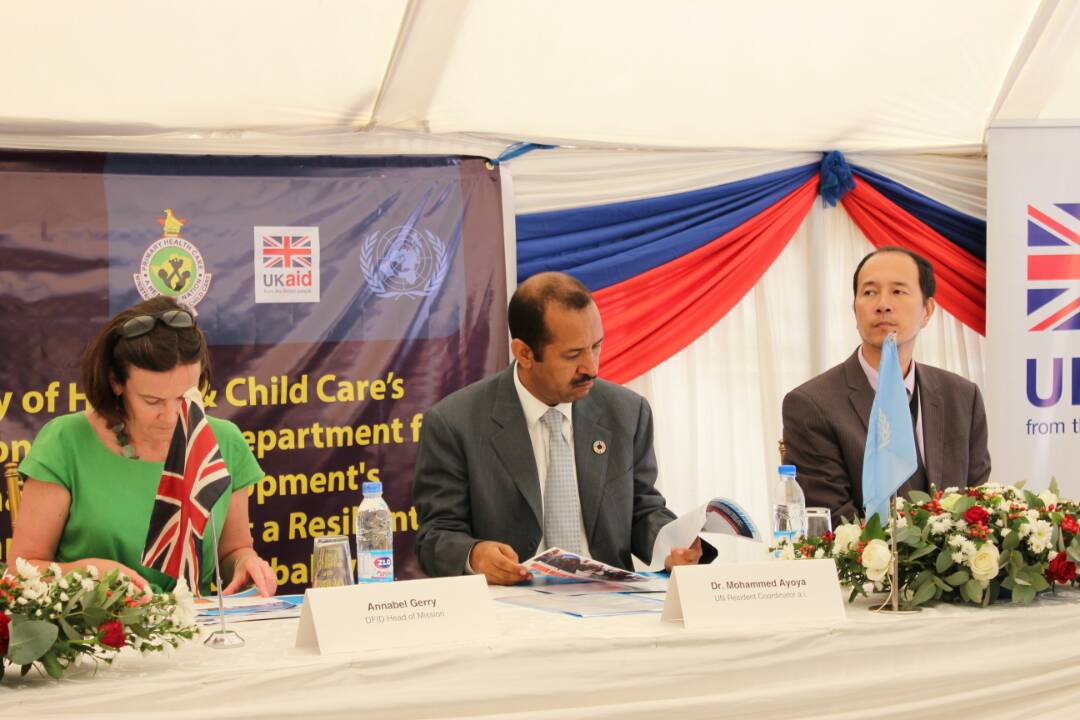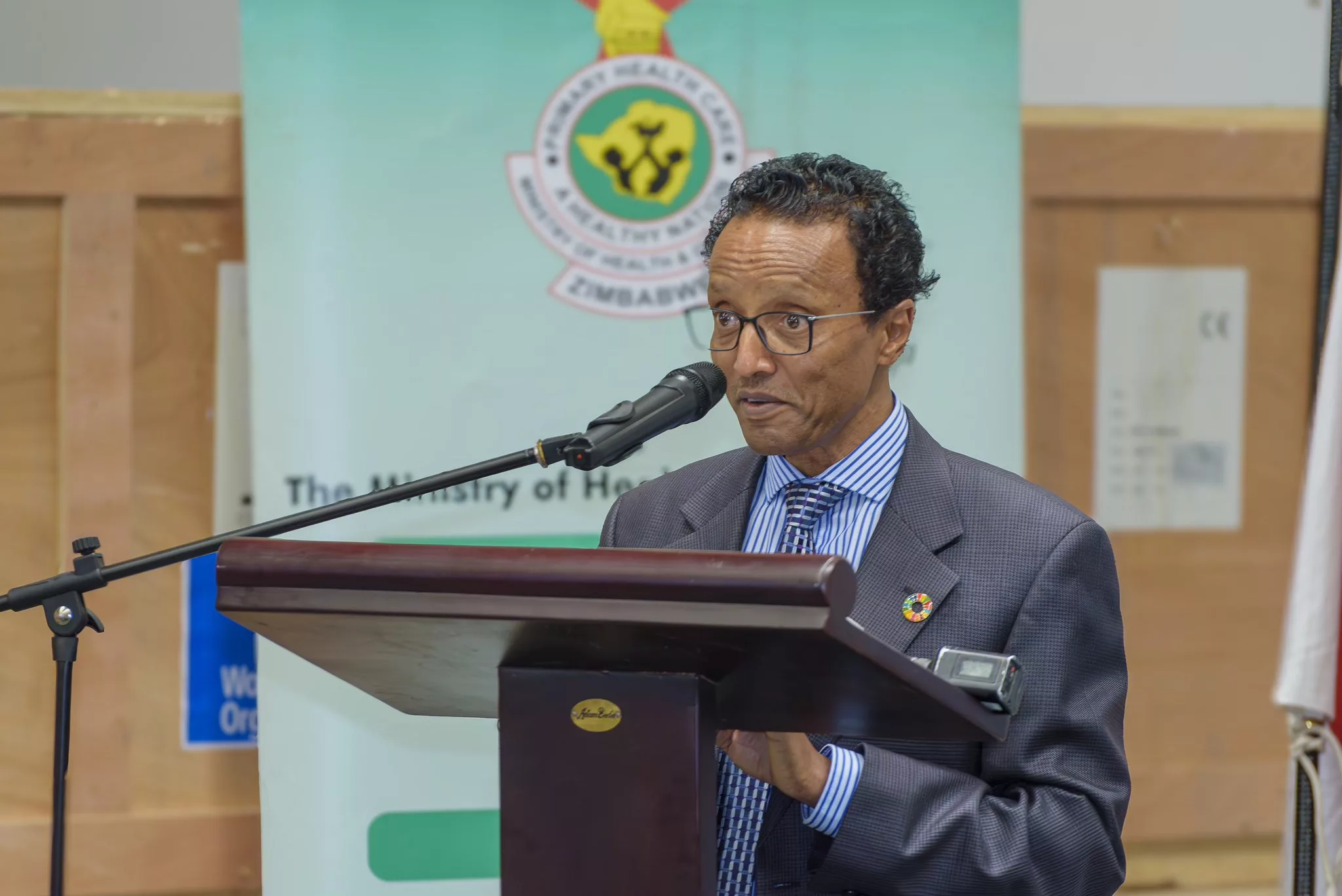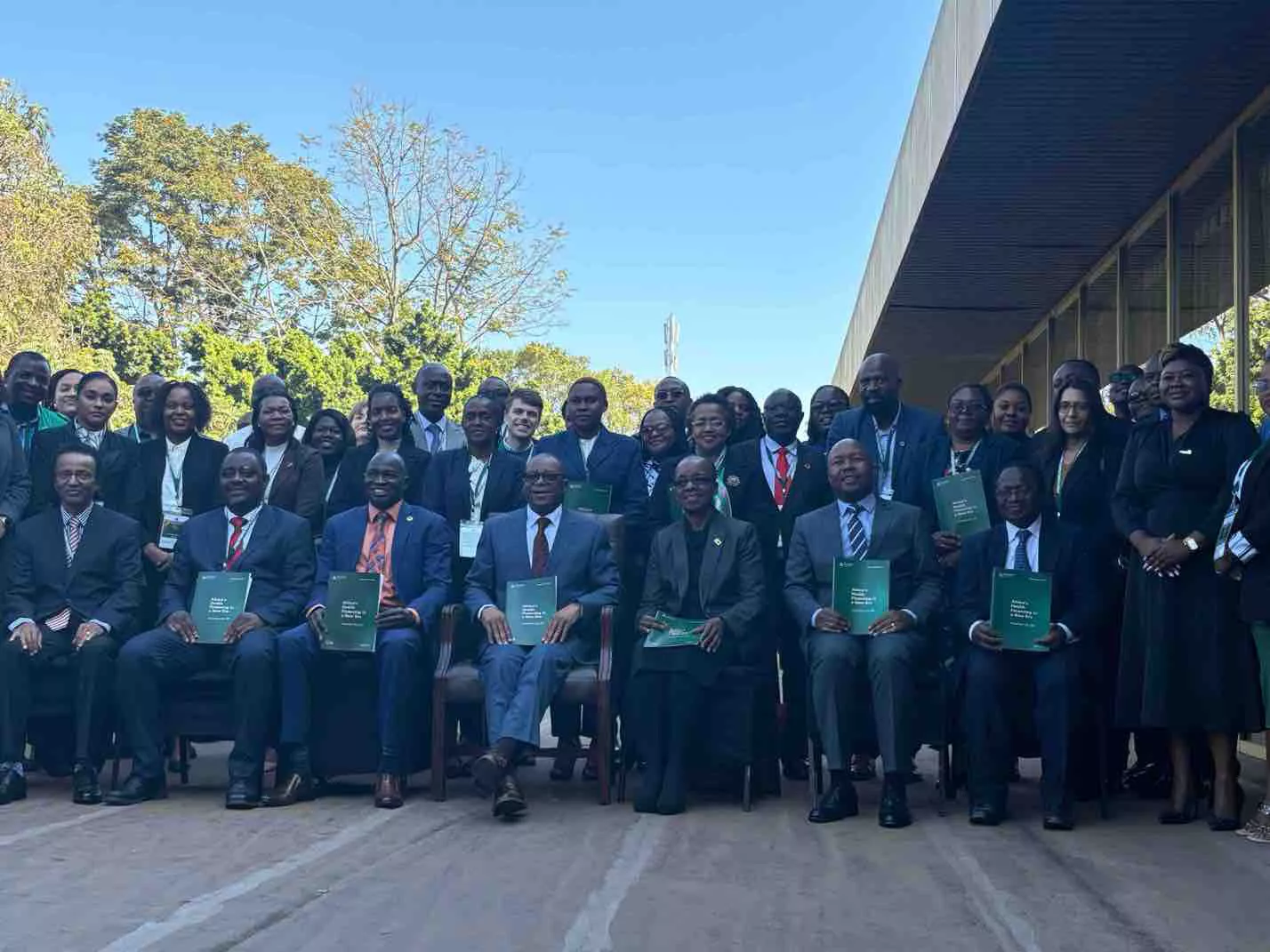By Thabani Dube
Harare
The trend of below-target funding from the national budget to the social sectors, including to health, renders tje sectors over-reliant on donors and risks the long term sustainability of programmes, a UN country boss has said.
Acting UN Resident Coordinator, who is also UNICEF Country Representative, Dr Mohamed Ayoya, on 9 November 2017, took a swipe at the government of Zimbabwe to be serious in adequately funding the health sector if achieving Sustainable Development Goals was anything to go by.
Dr Ayoya said this during the launch of the Resilient Health Systems Strengthening Programme- a grant of GBP 65.2 million (or US $82.1 million) by the UK Department for International Development (DFID).
Dr Ayoya said despite some achievements in the Zimbabwe’s health system, significant challenges still remain.
“Let me highlight what we see as Zimbabwe’s biggest challenge.
“The tight fiscal space which limits government’s contribution to the health sector. Take the 2017 national budget as an example. While US $282 million was allocated to the sector, it represented just seven (7) percent of the total budget and fell far short of the Abuja target of 15 percent,” said the acting UN boss adding that:
“The 2017 health budget was also 15 percent less than the US $330 million that was allocated ohe sector in 2016”.
Dr Ayoya said, currently, the generous contributions of donors account for more than 50 percent of the total resources flowing into the health sector and more than 80 percent of the non-wage budget.
“It means the nation’s vision for social inclusion, in line with the SDGs, cannot be attained as the marginalised will be left without access to essential health care.
“This scenario calls us to refocus and prioritise resource allocation. It is heartening to note that senior government officials, parliamentarians and local authorities, during a series of multi-stakeholder consultations on the SDGs, recognised the need for the introduction of programme-based national budget allocations that are fully aligned with the SDG implementation plan,” said Dr Ayoya.
Dr Ayoya said the development partners look forward to an improved national budget allocation and disbursement framework to the social sectors and to the nationally prioritised 10 SDG goals.
In response, Deputy Minister for Ministry of Health and Child Care, Aldrin Musiiwa said his ministry has been discussing with parliament on the allocation of resources to health.
He said while there was notable limited fiscal space the innovation of the Health Fund created through the air time levy, was going to bring some relief on medicines and medical products and specially for the referral facilities.
“The country remains focused at achieving the highest standard of health care and quality of life possible for all citizens.
“We are cognitive of the fact that on our own we will not be able to achieve this mission but rather, a lot can be achieved through strong partnerships and support from all health partners and involvement of all stakeholders.
“Going forward we have set ourselves ambitious targets as given in our National Health Strategy (2016-2020) of which on an annual basis we need US $1 Billion,” said Musiiwa.
Meanwhile, the Head of Mission, DFID, Ms Annabel Gerry while adding her voice in urging the government of Zimbabwe to take seriously resource allocation to social and health sectors said the majority of the resilient health systems grant would finance health interventions implemented under the HDF while $2.2 million would be for strengthening the country’s capacity to prevent, detect, and respond to disease outbreaks.
“Through the UK’s support, the availability of basic medicines in rural health centres has risen from 12 percent to over 90 percent and we have seen an increase in the contraceptive prevalence rate from 57 percent to 66 percent, putting Zimbabwe above the global average and over doubled the continental average,” said Gerry.






